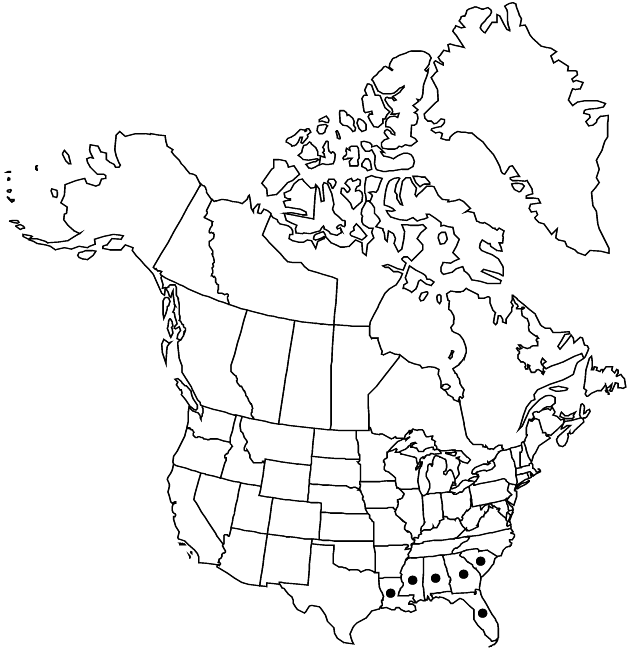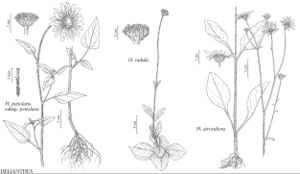Helianthus radula
Fl. N. Amer. 2: 321. 1842.
Perennials, 50–100 cm (with crown buds). Stems erect, distally densely hispid. Leaves mostly basal; opposite; petioles obscure (intergrading with blades); blades obovate to orbiculate, 4.6–14.5 × 2.1–12 cm, bases broadly cuneate to rounded, margins entire or serrulate, abaxial faces strigoso-hispid, not gland-dotted (cauline usually much smaller, alternate distally). Heads usually borne singly. Peduncles 10–20 cm. Involucres shallowly hemispheric, (15–25 ×) 5–8 mm. Phyllaries (often dark purple) 25–33, lanceolate to ovate, 10–14 × 3–5 mm, apices acute to acuminate, abaxial faces hispid or glabrous. Paleae 9–10 mm, subentire to 3-toothed (apices purplish, mucronate). Ray florets 0 or 2–8; laminae (sometimes purplish) 1–2(–10) mm. Disc florets 100–150+; corollas 7–8 mm, lobes reddish; anthers dark, appendages dark. Cypselae 3–4 mm, glabrate; pappi of 2 (often unequal) aristate scales 0.5–2.9 mm. 2n = 34.
Phenology: Flowering fall.
Habitat: Sandy, open pine barrens, flatwoods
Elevation: 0–50+ m
Distribution

Ala., Fla., Ga., La., Miss., S.C.
Discussion
Selected References
None.
